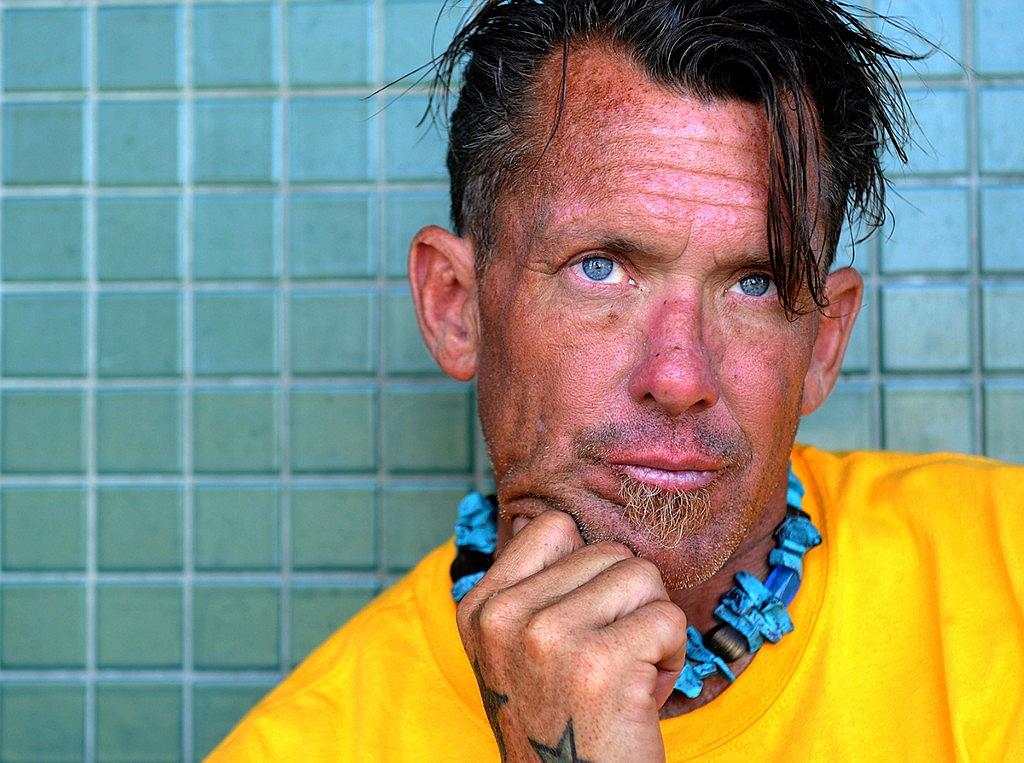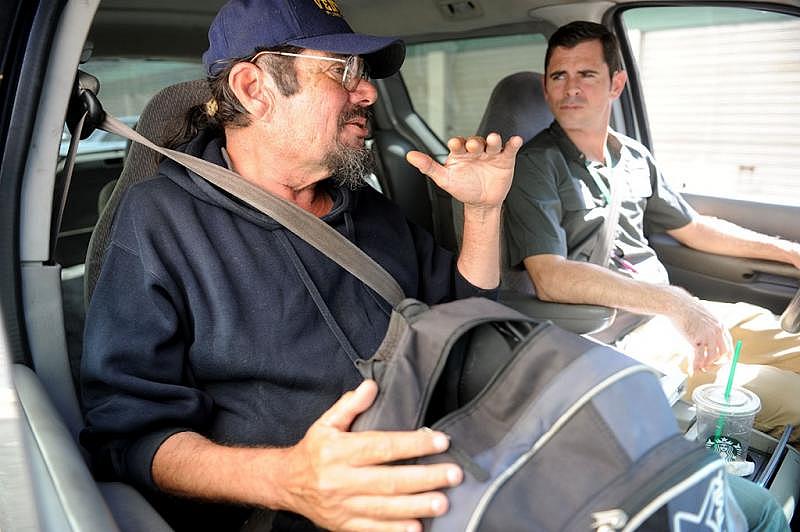Some chronically homeless people haunted by mental health issues (Part 1)
Claudia Boyd-Barrett is a Southern California-based freelance journalist with an interest in healthcare, poverty issues, immigration and local government. She reported this project as a 2015 California Health Journalism Fellow at the University of Southern California’s Annenberg School of Journalism. Boyd-Barrett currently writes for the Ventura County Star, the California Health Report, and the Jewish Journal of Greater Los Angeles.
Other stores in the series include:
Agencies struggle to help homeless who resist services (Part 2)
Affordable housing is key to helping homeless (Part 3)
Challenges double when reporting on homelessness and mental health, but a few tips can help

The voices were back.
Jamie Hardy’s blue eyes darted nervously around the room as he sat inside a drop-in center for the homeless in Ventura.
For five days, he said, he’d gone without his medications for schizophrenia. They were stolen, he said, by a street couple he thought were his friends.
Now, the illness he says he’s battled since his teens — the one that propelled him into a decades long cycle of homelessness, alcohol addiction and drug abuse — was regaining strength.
Voices clamored for attention in his head. They insulted him, told him he was garbage. They stoked the flames of paranoia, warning him he was about to get jumped by police.
“It’s so real,” he said. His face contorting as he jumped from one conversation topic to another. “It’s been like this all night and all day. Hearing differing things…it’s embarrassing. I think people are looking at me and thinking, ‘this guy’s crazy.’”
Hardy, 50, is one of dozens of people in Ventura County trapped in what can become a revolving door of homelessness and mental illness. They are often chronically homeless, meaning they have a disabling condition — which can include mental illness — and have been homeless for over a year, or multiple times in the past three years.
Mental health problems, such as schizophrenia, bipolar disorder, anxiety and depression, are why some people are homeless and one of the biggest challenges to getting them off the streets, according to social service professionals.
“Homelessness is a pretty logical byproduct of mental illness,” said Jason Meek, executive director of the Turning Point Foundation, a Ventura agency serving the homeless and mentally ill. “You’re paranoid, you don’t trust your boss, you stop going to work. Or you’re depressed and you just can’t get out of bed, you get fired because you didn’t show up.
“You can’t pay your rent because you lost your job. It’s a real quick, snowball effect…it’s truly not their fault.” The 2015 Ventura County Homeless Count — a one-day survey in January — showed the number of men, women and children homeless in the county decreased for the third straight year, to 1,417.
Ken Holnes, 61, (left) gets a ride from Joseph Eckes (right), a counselor/health navigator at Turning Point Foundation, to the Ventura County Health Department. Holnes has been homeless for three years.
Of that total, about 451 adults on a given night were chronically homeless, or 32 percent, according to the homeless count. Nationally, 14.5 percent of all homeless people were chronically homeless, based on the U.S. Department of Housing and Urban Development’s 2014 homeless count report.
Among the county’s chronically homeless, 37 percent reported a mental illness in the 2015 count. Some officials believe the real percentage is likely higher because the annual survey relies on homeless people self-reporting mental illness, and some may not realize it or don’t want to admit it.
SELF-MEDICATION
Hardy said he knew something was wrong by the time he was 17. He heard voices at night. His brother would ask who he was talking to, not realizing Hardy was talking to himself. Hardy said he approached his mother about the problem, but she brushed it off.
So Hardy turned to alcohol, the only thing that made him feel normal again.
“I started drinking beer and I noticed right away the voices started to kind of go away,” he said in an interview when his mind was calmed by medication. “It felt really, really kind of neat. I felt relaxed.”
That began a downward spiral into alcohol addiction, drugs and depression. For a while, he held it together, he said, working as a stock trader in the Bay Area, later at an animal shelter in Las Vegas, and as a host at a Hard Rock Café in Los Angeles. But the alcoholism, drugs and undiagnosed schizophrenia always caught up with him. He’d lose his job and end up on the streets.
Substance abuse is widespread among the chronically homeless, particularly those with mental health issues. Social service agencies refer to these people as being “dual-diagnosis,” because they suffer from more than one debilitating condition. Many homeless people with a mental illness use drugs or alcohol to self-medicate.
A complicating factor is that there is no cure for serious mental illnesses like bipolar disorder and schizophrenia, which require long-term management with medications. But it takes time to figure out what works best for each person.
[This story was originally published by the Ventura County Star. Photos by Juan Carlo.]

